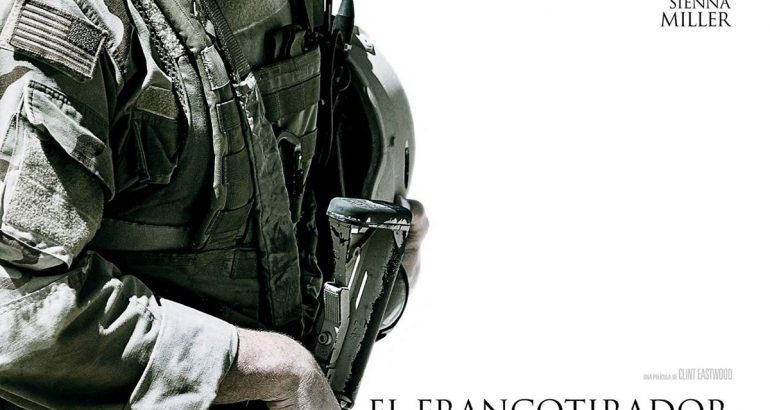
CINE FORO SOBRE CINE AMERICANO – ASPECTOS A CONSIDERAR DURANTE LA VISUALIZACIÓN DE LA PELÍCULA PARA EL POSTERIOR DEBATE: EL FRANCOTIRADOR
El francotirador (American Sniper – Clint Eastwood, 2014) es una película dirigida por Clint Eastwood basada en la autobiografía de Chris Kyle, un Navy SEAL que sirvió en la guerra en Irak, titulada American Sniper: The Autobiography of the Most Lethal Sniper in U.S. Military History. Estrenada en 2014, la película llegó a ser la más taquillera del año en los Estados Unidos. En los Oscars de 2014 fue nominada en las categorías de mejor película, mejor guión, y mejor actor (Bradley Cooper), y ganó en la categoría de mejor edición de sonido. Tanto la dirección de Eastwood como la actuación de Bradley Cooper como Chris Kyle fueron alabadas por los críticos.
Originalmente de una zona rural de Texas, Chris Kyle había aprendido a tirar cazando con su padre. Se alistó en los SEALs poco antes de los atentados del 11 de septiembre de 2001 y el comienzo de la guerra en Irak. Estacionado en Irak llegó a ser el francotirador más conocido del ejército, donde se le referían como “la legenda.” A diferencia de la autobiografía en la que está basada, la película representa la muerte trágica de Kyle en 2013, ya de vuelta a Texas.
Conocido como una de las figuras del cine estadounidense por excelencia, con El francotirador Eastwood pasa al territorio de la guerra en el siglo ventiuno. Auto-identificado como un republicano moderado, Eastwood ha criticado las guerras en las que se ha implicado los Estados Unidos desde la guerra en Vietnam hasta las guerras en Afganistán y Irak. El director ha clasificado a la película como anti-guerra, por cómo muestra la lucha de los veteranos a compaginar sus experiencias en la guerra con la vida después de la batalla. Sin embargo, otros han tomado la película como pro-guerra, sobre todo por la manera en que glorifica el papel del francotirador y por el tono sumamente patriótico que tiene.
A diferencia de la mayoría de las películas en el ciclo de cine de este año, que considera el tema de los derechos humanos y civiles en el cine americano, El francotirador no se limita al ámbito doméstico de los Estados Unidos. También pide al espectador considerar la importancia de los derechos humanos en las guerras en tierras extranjeras. Propone una reflexión sobre el coste humano de las guerras en la época contemporánea, y sobre todo el papel del veterano en la sociedad cívica.
Mary Kate Donovan
Os recordamos que la proyección y el debate serán el próximo miércoles 30 de noviembre del 2016 a las 18 h. (proyección) y a las 20:30 h. el coloquio.



